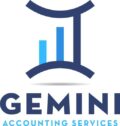Managing a short-term rental property can be a lucrative venture, but it comes with its own set of responsibilities, particularly in financial record-keeping. Accurate and organized records are essential for tax compliance, maximizing deductions, and ensuring the overall success of your rental business. In this guide, we\’ll explore best practices for short-term rental record-keeping to help you stay on top of your financial obligations.
1. Separate Personal and Business Finances
One of the foundational steps in managing your rental property is to keep your personal and business finances distinct. Open a dedicated bank account and credit card for your rental activities. This separation simplifies tracking income and expenses, making tax reporting more straightforward and reducing the risk of errors.
2. Maintain Detailed Income Records
Accurately recording all rental income is crucial. Keep track of the dates of each rental period, the amount earned, and the source of the booking (e.g., Airbnb, direct booking). Utilizing property management software can automate this process, ensuring consistency and accuracy.
3. Track All Expenses Meticulously
Document every expense related to your rental property. Common deductible expenses include:
- Mortgage Interest: The interest portion of your mortgage payments.
- Property Taxes: Annual taxes assessed by your local government.
- Insurance Premiums: Costs for insuring your rental property.
- Utilities: Electricity, water, gas, internet, and other services provided to guests.
- Maintenance and Repairs: Routine upkeep and necessary repairs to keep the property in good condition.
- Cleaning Services: Costs associated with cleaning the property between guest stays.
- Supplies: Items like toiletries, kitchen essentials, and other guest amenities.
- Marketing and Advertising: Expenses for promoting your property, such as listing fees or paid advertisements.
Maintaining receipts, invoices, and bank statements for these expenses is essential for substantiating deductions during tax time.
4. Understand Depreciation
Depreciation allows you to deduct the cost of the property and significant improvements over time. For residential rental properties, the IRS typically allows depreciation over 27.5 years. Keep detailed records of the property\’s purchase price, the value of the land, and the cost of any capital improvements to accurately calculate depreciation.
5. Implement a Robust Record-Keeping System
Utilize digital tools and software to organize and store your financial records. Cloud-based accounting systems can securely keep track of income, expenses, and important documents, providing easy access when needed. Regularly back up your data to prevent loss.
6. Regularly Reconcile Your Accounts
Set aside time monthly to reconcile your bank statements with your recorded income and expenses. This practice helps identify discrepancies early, ensuring the accuracy of your financial records.
7. Stay Informed on Tax Obligations
Short-term rental income is subject to taxation, and understanding your tax obligations is vital. Familiarize yourself with federal, state, and local tax requirements, including occupancy taxes that may apply in your area. Consulting with a tax professional can provide clarity and ensure compliance.
8. Keep Records of Personal Use
If you use the property personally in addition to renting it out, maintain detailed records of personal versus rental use. The IRS has specific rules regarding the allocation of expenses between personal and rental use, which can affect your deductible amounts.
9. Retain Records for the Appropriate Duration
The IRS recommends keeping records for at least three years from the date you file your tax return. However, for assets subject to depreciation, such as your rental property, it\’s advisable to keep records for the entire depreciation period plus an additional few years.
10. Seek Professional Assistance
Engaging with a certified public accountant (CPA) or a tax advisor experienced in real estate can provide personalized guidance tailored to your situation. They can assist with complex issues like depreciation schedules, tax deductions, and ensuring compliance with evolving tax laws.
By implementing these best practices in record-keeping, you can effectively manage your short-term rental property\’s finances, maximize your tax deductions, and maintain compliance with tax regulations. Organized records not only simplify tax preparation but also provide valuable insights into your property\’s financial performance, aiding in informed decision-making for your rental business.

